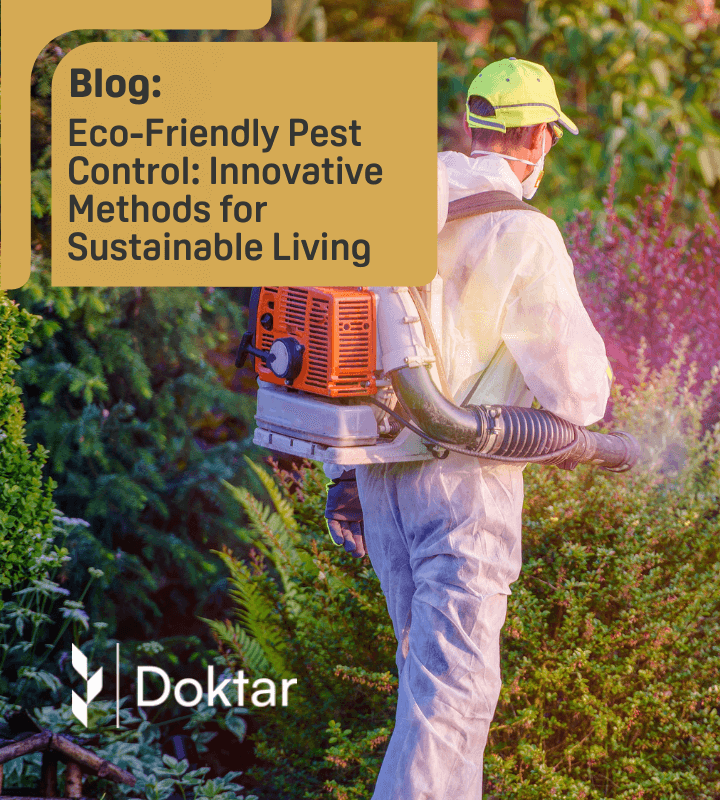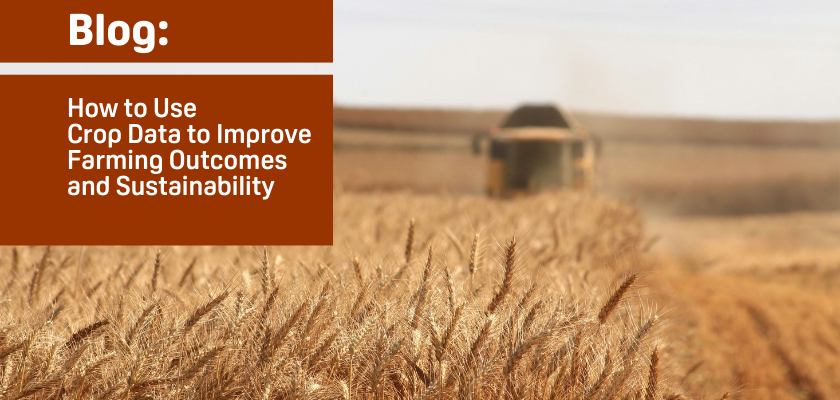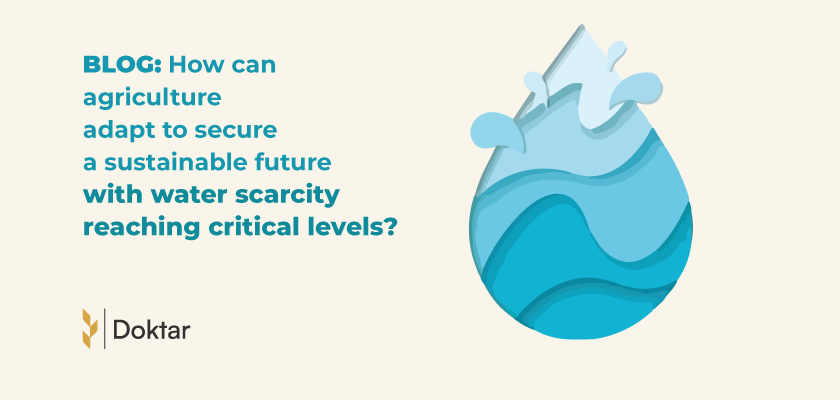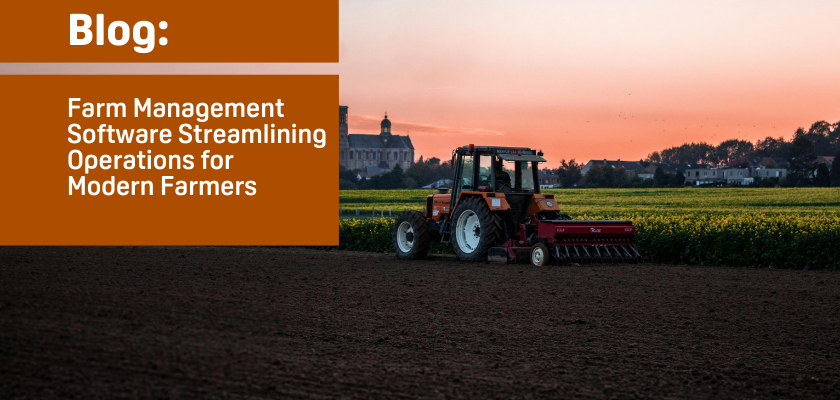

Eco-Friendly Pest Control: Innovative Methods for Sustainable Living
Discover eco-friendly pest control methods that promote sustainable living. Explore natural techniques like biological control, botanical insecticides, and companion planting. Learn about technological innovations such as IoT-based pest monitoring and drone technology. Overcome challenges and embrace future prospects with Doktar’s innovative solutions, ensuring effective and environmentally friendly pest management.
Published on 10 July 2024
Why is Eco-Friendly Pest Control Important?
Traditional pest control methods often rely on chemicals that can harm the environment, human health, and beneficial wildlife. Eco-friendly alternatives reduce these risks, promoting a healthier ecosystem and sustainable living. These methods prioritize using natural and non-toxic solutions, ensuring that pest management practices are used only when necessary and do not contribute to soil degradation, water contamination, or biodiversity loss.
Moreover, the increasing awareness of environmental issues has led to a demand for more sustainable living practices. Consumers and businesses alike are seeking ways to reduce their ecological footprint. Adopting eco-friendly pest control methods aligns with this trend and supports broader environmental goals such as reducing chemical runoff, protecting pollinators, and maintaining healthy soil ecosystems.
What are Some Natural Pest Control Methods?
Natural pest control methods are essential components of eco-friendly pest management. These techniques utilize the natural behavior of pests and their interactions with the environment to manage pest populations. Here are some effective natural pest control methods:
1. Biological Control: This method involves using natural predators or parasites to control pest populations, such as introducing ladybugs to control aphids or using nematodes to target soil-dwelling pests.
2. Botanical Insecticides: Derived from plants, these insecticides, such as neem oil or pyrethrin, offer an eco-friendly alternative to synthetic chemicals. They are biodegradable and less harmful to non-target organisms.
3. Companion Planting: When planted together, certain plants can deter pests or attract beneficial insects. For instance, planting marigolds can help repel nematodes, and basil can ward off mosquitoes.
4. Physical Barriers: Nets, row covers, or sticky traps can prevent pests from reaching crops. These barriers are practical and do not introduce any chemicals into the environment.
5. Cultural Practices: Crop rotation, intercropping, and maintaining healthy soil through composting and mulching can reduce pest infestations. Healthy plants are less susceptible to pest attacks.
What Technological Innovations Are Available for Eco-Friendly Pest Control?
Technological advancements have significantly enhanced eco-friendly pest control methods, making them more efficient and effective. Here are some cutting-edge innovations:
1. IoT-Based Pest Monitoring: Internet of Things (IoT) devices, such as Doktar’s PestTrap, provide real-time monitoring of pest populations. These devices use AI-powered image recognition to detect and count pests, allowing for timely and targeted interventions. PestTrap can detect over 20 pests and provide density alerts, helping farmers and gardeners respond promptly to pest threats.
2. Drone Technology: Drones with cameras and sensors can survey large areas quickly and accurately, identifying pest hotspots. This aerial perspective allows for the precise application of biological controls or natural insecticides, reducing the need for blanket pesticide applications.
3. Automated Pest Detection Systems: Systems like Doktar’s integrated AI models can analyze data from multiple sources, including satellite images and field sensors, to predict pest outbreaks and provide early warnings. These systems help in proactive pest management, minimizing crop damage, and reducing pesticide use.
4. Variable Rate Application (VRA): This technology, available in Doktar’s Orbit platform, allows for the precise application of inputs like fertilizers and pesticides based on specific field conditions. By targeting only the areas that need treatment, VRA reduces chemical use and promotes sustainable farming practices.
What Challenges and Future Prospects Exist in Eco-Friendly Pest Control?
Challenges
1. Initial Costs: Adopting advanced eco-friendly pest control technologies can require significant initial investment. Devices like IoT sensors and drones, while cost-effective in the long run, can be expensive to purchase and implement.
2. Knowledge and Training: Using eco-friendly pest control requires knowledge and expertise. Farmers and gardeners need training to understand and implement these techniques properly. This can be a barrier in regions with limited access to education and resources.
3. Resistance Management: Just as pests can develop resistance to chemical pesticides, they can also adapt to biological controls. Continuous research and adaptation are necessary to ensure long-term effectiveness.
Future Prospects
1. Enhanced AI and Machine Learning: As AI and machine learning algorithms continue to advance, their application in pest control will become even more precise and predictive. This will allow for more targeted interventions and reduce the reliance on broad-spectrum pesticides.
2. Increased Adoption of Integrated Pest Management (IPM): IPM combines biological, cultural, physical, and chemical tools to minimize economic, health, and environmental risks. The future of eco-friendly pest control lies in the widespread adoption of IPM practices supported by technological advancements.
3. Policy Support and Incentives: Governments and organizations can play a crucial role by providing incentives for adopting eco-friendly pest control methods. Policies that support research subsidize the cost of eco-friendly technologies, and promote education and training can drive the transition toward sustainable pest management.
4. Collaboration and Knowledge Sharing: Platforms that facilitate collaboration and knowledge sharing among farmers, researchers, and technology providers can accelerate the development and adoption of eco-friendly pest control methods. Sharing success stories and best practices can inspire others to shift towards sustainable pest management.
Highlighting Doktar’s Services for Pest Management
Doktar is at the forefront of providing innovative solutions for sustainable pest management. Our products, such as PestTrap, integrate cutting-edge technology to offer real-time, eco-friendly pest control options. PestTrap uses AI to detect and count pests, providing timely alerts to help manage infestations without relying on harmful chemicals.
Additionally, Doktar’s Orbit platform offers comprehensive field monitoring and management tools. With features like Variable Rate Application, Orbit helps farmers apply inputs more precisely, reducing environmental impact and promoting sustainable agricultural practices.
By leveraging advanced technologies and providing tailored agronomic advice, Doktar supports the global shift towards eco-friendly pest control and sustainable agriculture. Our commitment to innovation and sustainability ensures farmers can protect their crops and the environment, leading to a healthier planet and more resilient agricultural systems.
Conclusion
Eco-friendly pest control is not just a trend but a necessity for sustainable living. By embracing natural methods and technological innovations, we can manage pests effectively while protecting the environment. As we move towards a more sustainable future, companies like Doktar lead the way with innovative solutions that make eco-friendly pest management practical and efficient. Together, we can create a healthier home and planet, ensuring that our pest control practices contribute positively to the environment.
For those interested in exploring how Doktar's innovative solutions can transform your agricultural practices, visit our website for detailed information on all our products. Stay updated with the latest developments by following us on Instagram and LinkedIn, where we share insights, tips, and updates about our technologies and their impact on modern farming. Our mission is to ensure every agronomic decision is based on accurate information and optimization for a healthier, sustainable, and tastier world. Join us in transforming agriculture and achieving a more sustainable future.

How to Use Crop Data to Improve Farming Outcomes and Sustainability
Crop data empowers farmers by enabling precision agriculture, enhancing productivity, and promoting sustainability. Tools like Doktar's CropMap, Orbit, Filiz, and PestTrap transform raw data into actionable insights for optimized irrigation, pest management, and resource use. This data-driven approach supports sustainable farming practices, ensuring environmental stewardship, improved yields, and resilience against climate change and food insecurity.

From fields to streams: How a water replenishment program is supporting net-zero goals
Doktar Technologies addresses agriculture's water challenges with innovative programs that leverage AI, IoT, and satellite monitoring for efficient irrigation, rainwater harvesting, and regenerative practices. Partnering with companies like Coca-Cola and Nestlé, Doktar helps achieve net-zero water goals while enhancing yields and farmer incomes, fostering sustainable and resilient agricultural systems.

Farm Management Software Streamlining Operations for Modern Farmers
Farm management software has become an invaluable asset in the digitalization of modern agriculture, offering tools to improve efficiency, enhance resource allocation, and support data-driven decision-making. With platforms like Doktar's FieldFlow, Filiz, and CropMap, farmers can adopt sustainable and regenerative agricultural practices, addressing the challenges of today while securing a productive future. Whether managing a small farm or a large agribusiness, adopting farm management software can streamline operations, boost profitability, and promote long-term sustainability in agriculture.
